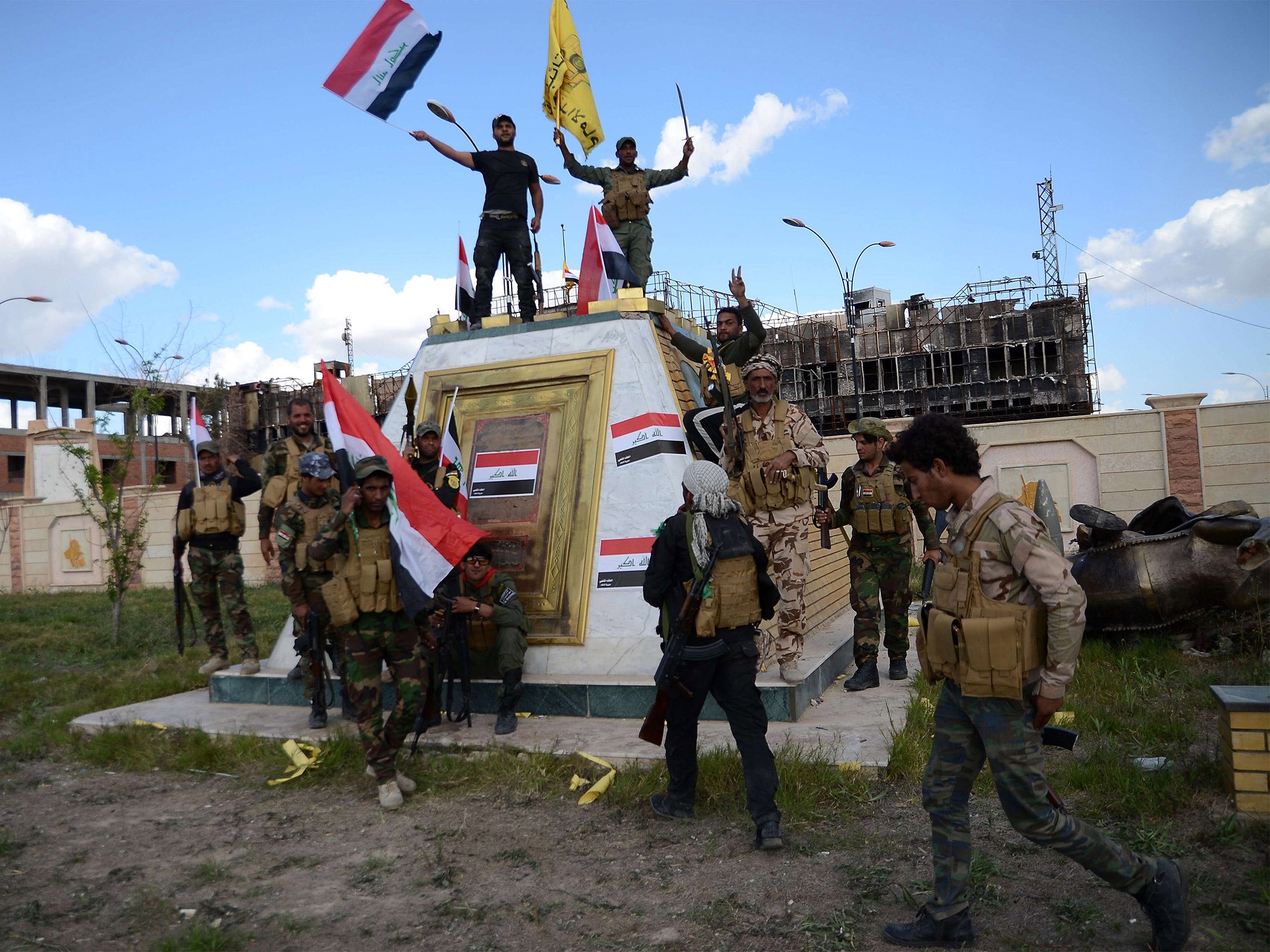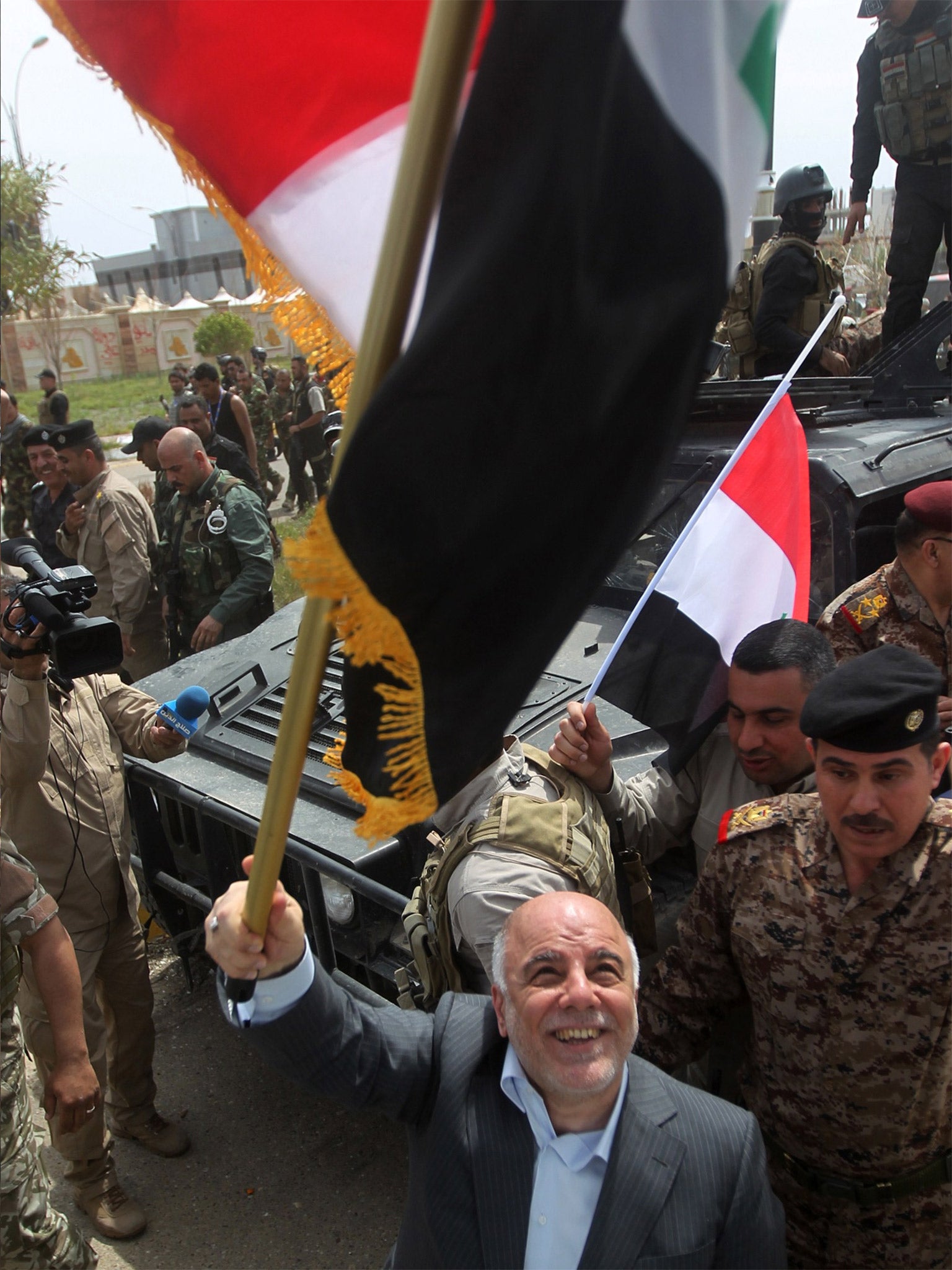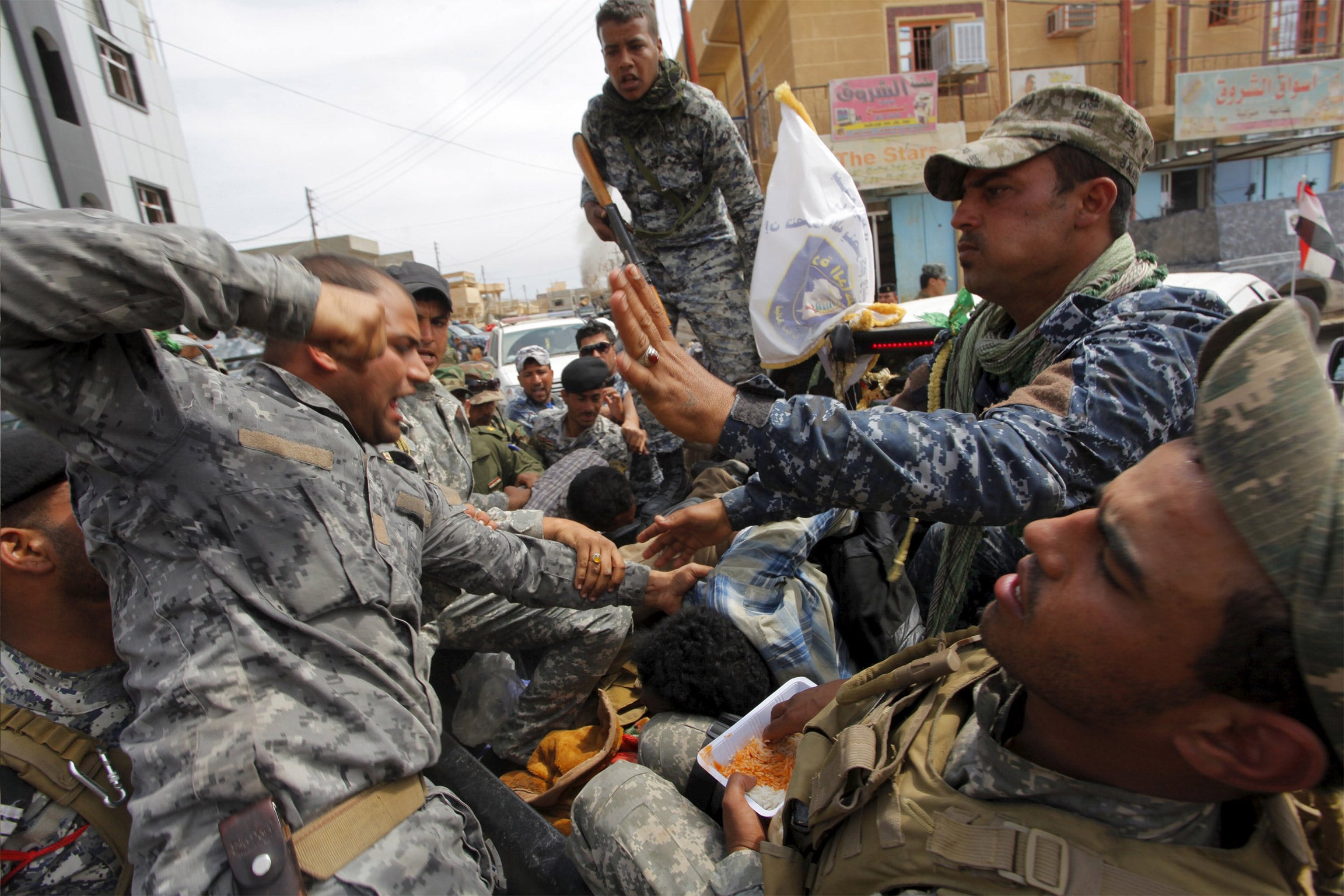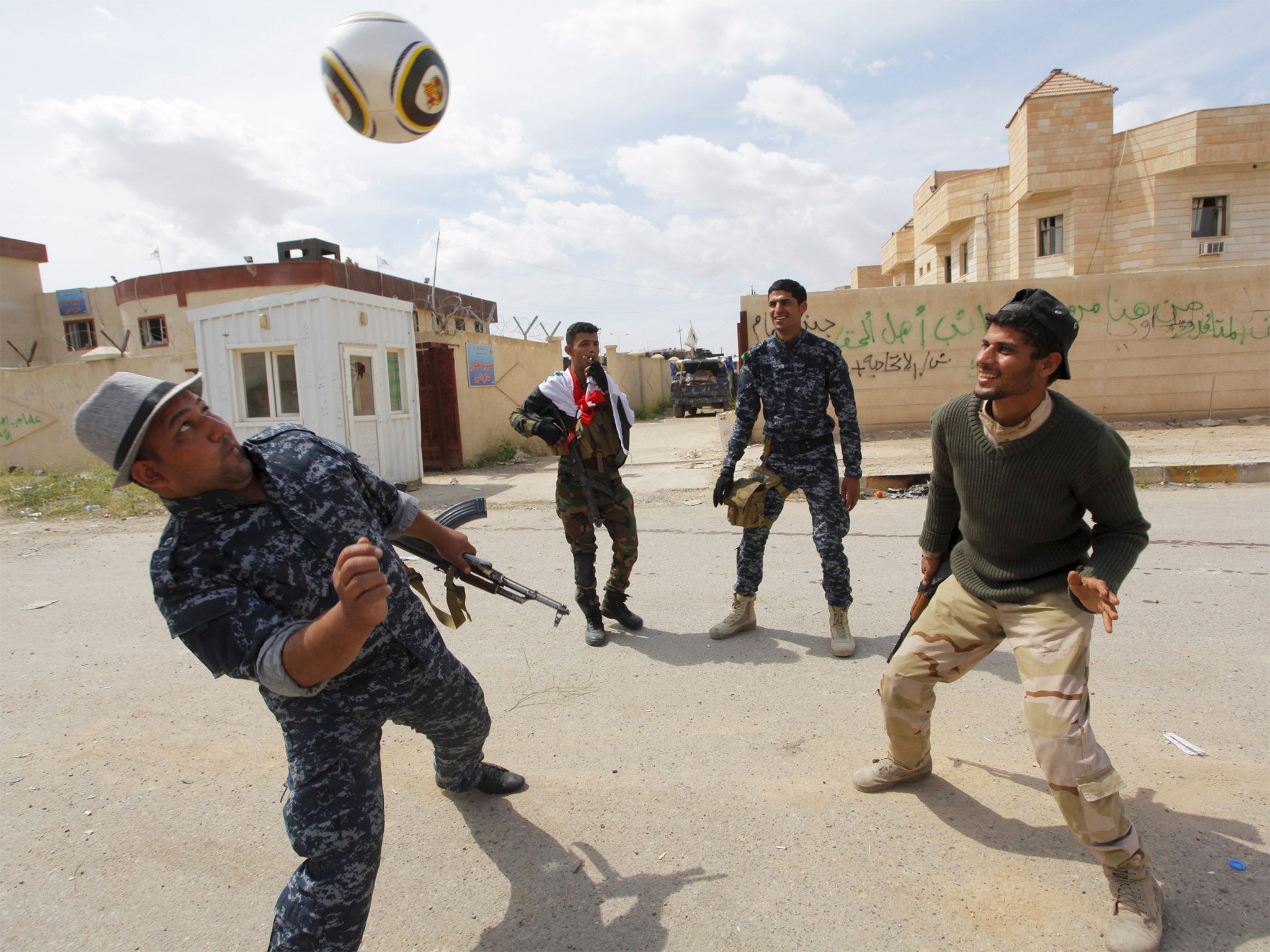War with Isis: Iraq declares victory in the battle for Tikrit - but militants make make ominous advances in neighbouring Syria's capital
Baghdad celebrates its first real success against the jihadists, but fighters have taken over large parts of a refugee camp not far from the heart of Damascus

Your support helps us to tell the story
From reproductive rights to climate change to Big Tech, The Independent is on the ground when the story is developing. Whether it's investigating the financials of Elon Musk's pro-Trump PAC or producing our latest documentary, 'The A Word', which shines a light on the American women fighting for reproductive rights, we know how important it is to parse out the facts from the messaging.
At such a critical moment in US history, we need reporters on the ground. Your donation allows us to keep sending journalists to speak to both sides of the story.
The Independent is trusted by Americans across the entire political spectrum. And unlike many other quality news outlets, we choose not to lock Americans out of our reporting and analysis with paywalls. We believe quality journalism should be available to everyone, paid for by those who can afford it.
Your support makes all the difference.Iraq’s Prime Minister, Haider al-Abadi, joined in a triumphal parade through the centre of Tikrit today as he his government claimed victory over Isis after a month-long battle for the city.
Joined by the provincial Governor and leaders of the army, police and Shia militias, he waved an Iraqi flag and announced that his forces had captured the centre of Tikrit, in what would be the first real success for the Iraqi army since it lost northern and western Iraq to the so-called Islamic State last year.
His Defence Minister, Khalid al-Obeidi, said: “We have the pleasure, with all our pride, to announce the good news of a magnificent victory.”
Naming two Iraqi provinces still under Isis control, he added: “Here we come to you, Anbar! Here we come to you, Nineveh.”

But at the very moment that there was jubilation in Baghdad over the long-awaited seizure of Tikrit, famous as Saddam Hussein’s home town, Isis made a significant advance close to the centre of the capital of neighbouring Syria.
The British-based Syrian Observatory for Human Rights said that Isis fighters had taken over a large part of Yarmouk Palestinian refugee camp, not far from the heart of Damascus.
The Iraqi government is seeking to play up the fall of Tikrit as the beginning of the end of Isis and suggesting that the recapture of the rest of Iraq will soon follow. Mr Abadi was himself restrained in his claim, saying that “our security forces have reached the centre of Tikrit and they have liberated the southern and western sides and they are now moving towards the control of the whole city”.
Other sources say that several hundred fighters were still resisting, using snipers and booby traps in three neighbourhoods and in an old palace complex in the north of the city. The government’s forces have taken the Governor’s headquarters and the main hospital.
For all the official euphoria, the slow pace of the assault on Tikrit, a small Sunni Arab city that once had a population of 200,000, is not a good omen for further advances. The attack began on 2 March with some 20,000 Shia militiamen encircling the city with only 3,000 government soldiers, some special forces and 1,000 Sunni tribal fighters. The operation appears to have been under the control of Iranian officers and the Iraqi government was only told about it at the last moment.
The US, suspicious of an Iranian-led militia assault, was not at first asked for air support and did not give it until the last week, following a request by Mr Abadi.

Isis appears to have decided that it would not fight to the end in Tikrit, where its forces would have to engage in a slogging match against greatly superior numbers backed by artillery. The jihadist group is at its most effective when its forces act as guerrillas rather than as a regular army defending or attacking fixed positions.
Over the winter it suffered its first serious defeat when it failed to take the Syrian-Kurdish town of Kobani in a siege of 134 days during which it suffered heavy losses from some 700 US air strikes. Over the last week, the US has started to use its air power in Tikrit, though Shia militias said they would not fight in the city if there were American air attacks.
Whether the US suspended its air strikes is not clear, but the very fact that this was demanded by the militiamen shows the great animosities between different members of the anti-Isis coalition. Even if Baghdad claims to have won the battle for Tikrit it has still to rebuild an army that can take on Isis by itself. It is important to do so – and show that the army is more than just another Shia militia – if the government is to reassure the Sunni Arab community that its future is not bound up with that of Isis.

Isis has been busily conscripting soldiers throughout its self-declared caliphate and may well think it has greater military opportunities in Syria than Iraq. The Syrian army has suffered a series of setbacks in recent weeks north of Aleppo and has lost the provincial capital of Idlib to Jabhat al-Nusra, the al-Qaeda affiliate that was founded by Isis in 2012 but later split from it. The Syrian army is short of recruits after four years of war and shows signs of being fought out.
The takeover by Isis of part of Yarmouk Camp in southern Damascus, a city that has been under siege by the group for two years, may mean that its commanders believe it is better to attack here than engage in a battle of attrition at Tikrit, which they are bound to lose. Isis is said to control some main streets in the camp after clashing with a Palestinian group, Aknaf Beit al-Maqdis.
The United Nations has been trying to feed tens of thousands of Palestinians trapped in the camp with nowhere else to go.
The almost comical divisions between the different forces attacking Tikrit – with the Iranian-backed militiamen apparently refusing to fight if there are US air strikes in their support – makes it doubtful that there will be an offensive any time soon to recapture the northern capital of Mosul, which is 10 times larger than Tikrit. Nevertheless, grindingly slow though the recapture of Tikrit may have been, it is the first real success of the Iraqi government in its war with Isis and it will make the most of it.
Join our commenting forum
Join thought-provoking conversations, follow other Independent readers and see their replies
Comments